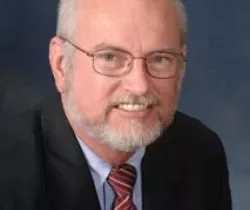Charles Olentine

Charlie Olentine, CEO of Consult NC Inc, has over 25 years experience in B2B publishing and from 2004 to 2016 managed the Top 50 show - International Production & Processing Expo. colentine@consult-nc.com

So much business is based on the belief that we should do whatever we can within legal limits to make as much money as we can. Ben & Jerry's was based on values, and we try to operate a business that not just sells ice cream but partners with all our stakeholders - whether that's suppliers or customers - to bring about a more sustainable world. -- Jerry Greenfield
When I took over management responsibilities for the International Poultry Expo (now the International Production & Processing Expo), my association president who had previously been the show manager told me that managing the show was exciting and enjoyable except for one area – keeping hotels in line. After 13 shows I can see what he meant. In that period of time we have had individual hotels in our block walk over 100 people at the start of the show; inform us one week before the show of the possibility of walking close to 200; change ownership immediately before the show and inform us they would not honor the inherited contract; provide meeting facilities for outboarders; and inform us at the last minute of new construction.
That being said, the show survived and grew and in the process developed what might be termed a reserved but solid partnership with the hotel community. In spite all of the hassles involved, the show developed a constructive relationship with the hotel community.
Of course, the one entity caught in the middle during these challenges is generally the convention bureau. In this regard, I am sure the Atlanta CVB blessed my name as they found themselves trying to react to challenges (and they have done an excellent job in doing so). In my dealings with the ACVB, they consistently worked to provide me a chance to see things from the hotel point of view which has succeeded in making the show stronger. For example, the show used to be held on a Wednesday through Friday schedule. The ACVB came to us and pointed out that if we moved the days to Tuesday to Thursday, it would benefit the hotels for booking other events. We did that and the partnership worked. The hotels were more receptive to our pleas to holding or minimizing increases in room rates. Additionally, we found that moving the last day to Thursday, rather than Friday, we saw increases in attendance for the last day of the show, the bane of all trade shows. I speculate that when the last day was Friday, attendees and exhibitors wanted to get home as quickly as possible. By moving it the Thursday, more people were willing to stay over Thursday and return Friday.
Also, one of the positives of establishing partnerships with hotels was a willingness by the hotels to open and educate us as to their concerns and procedures. For example, several years ago the local Omni Hotel sponsored an interesting training session for meeting planners which made us approach hotel rates from a revenue manager’s point of view. We were given hypothetical scenarios and told to maximize the scheduling from a RevPAR perspective. After gnashing my teeth on trying to put all the pieces together in the revenue puzzle, I now have a better appreciation of the pressures of constant changes in rate structures and getting heads in beds. While I am not terribly sympathetic to a revenue manager’s plight, I now understand where they are coming from.
We need to develop partnerships instead of superficial working relationships with the various suppliers and stakeholders of our trade shows. From a negotiation point of view, I have always taken the “Getting to Yes” approach where one seeks to provide a win-win situation for all parties. To do that, one has to have at least a basic knowledge of the needs and limitations of a supplier. That being said, I expect my vendor “partners” to honor all contractual obligations just as they have the same expectations for me. And they need to know that when they fall short, I will do whatever it takes to get recourse.

Add new comment